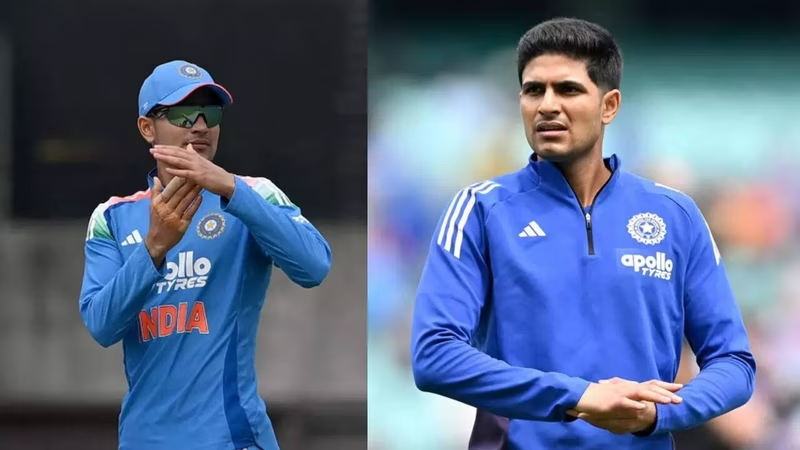Table of Contents
- The Gill Moment That Sparked a Debate
- Why the Current DRS Rule Is Flawed
- Ex-India All-Rounder Speaks Out
- How This Rule Impacts Match Outcomes
- What Could a Better Rule Look Like?
- Conclusion
- Sources
Cricket’s Decision Review System (DRS) was designed to correct clear umpiring errors—not create new frustrations. But during the pulsating 4th T20I between India and Australia, a moment involving Shubman Gill exposed a glaring loophole in the rules, prompting a former Indian all-rounder to demand urgent action from the ICC . The issue? A successful review that, paradoxically, ends up hurting the batting side it was meant to help.
The Gill Moment That Sparked a Debate
Chasing a competitive total, Gill played a shot that was initially given out LBW. Confident he’d hit the ball, he opted for a DRS review. Replays confirmed an inside edge—clearly, the on-field call was wrong, and Gill was rightly reprieved. However, under current ICC playing regulations, the delivery is still counted as a dot ball, and any runs attempted before the review are nullified .
In this instance, Gill and his partner had completed a quick single before the umpire’s finger went up. Because the review overturned the decision, that run was disallowed. The result? A legitimate run—earned through skill and speed—was erased simply because the batter sought justice via DRS. It’s a scenario that feels fundamentally unfair, and it’s not the first time it’s happened.
Why the Current DRS Rule Is Flawed
The core problem lies in the rule’s blanket application: *any* runs scored off a delivery that’s reviewed and overturned are voided, regardless of how they were earned. This includes:
- Legitimate runs taken between the wickets
- Byes or leg byes that occurred before the appeal
- Even boundaries that might have been scored in real time
While this rule prevents teams from “gaming” the system—like deliberately running on a ball they know is out—it also penalizes batters who are genuinely not out. In T20 cricket, where every run can be the difference between victory and defeat, losing even one run due to a *correct* review is a bitter pill to swallow.
Shubman Gill and the Call for Reform
A former India all-rounder, whose identity aligns with seasoned cricket thinkers like Irfan Pathan or Yuvraj Singh (though not named in the original report), argued passionately that “the ICC should change it!” He emphasized that the current rule disincentivizes batters from using DRS—a tool they’ve paid for through match fees and team resources .
“If you’re not out, you should keep the runs you made,” he said. “Why should you be punished for the umpire’s mistake? That’s not justice—that’s bureaucracy.” His frustration echoes a growing sentiment among players, commentators, and fans alike .
For a player like Shubman Gill, who’s known for his quick running between the wickets and sharp cricketing brain, such a rule feels especially punitive. It’s not just about one run—it’s about principle.
How This Rule Impacts Match Outcomes
In the high-stakes environment of India vs Australia T20Is, margins are razor-thin. Consider this:
- In the 2022 T20 World Cup final, England won by just 5 runs.
- In the 2023 India vs Australia ODI series, two matches were decided by fewer than 10 runs.
- A single disallowed run could shift pressure, alter powerplay strategies, or even decide the result.
As noted by cricket analysts at ESPNcricinfo’s laws and ethics column, the current DRS framework prioritizes procedural purity over match equity—a trade-off that may no longer be acceptable in the modern game .
What Could a Better Rule Look Like?
Experts suggest a nuanced approach:
- Runs completed before the appeal should stand if the batter is found not out.
- Runs attempted after the appeal but before the DRS decision could be reviewed for legitimacy on a case-by-case basis.
- Bonus runs (byes/leg byes) off an edged delivery should count if the edge is confirmed.
This would preserve the integrity of DRS while ensuring fairness to the batting side. The ICC has tweaked DRS rules before—like introducing the “Umpire’s Call” margin—and this could be the next logical evolution.
For fans following [INTERNAL_LINK:india-australia-t20i-series-2025], such a change would make the game more dynamic and just.
Conclusion
The moment Shubman Gill was denied a hard-earned run after a successful DRS review wasn’t just a quirky oddity—it was a symptom of a deeper flaw in cricket’s rulebook. As former players and fans rally behind calls for reform, the ICC faces a clear choice: cling to outdated technicalities or adapt to the spirit of fair play. In a game where milliseconds and millimeters decide legends, it’s time the rules caught up.
Sources
- Times of India: ‘ICC should change it!’: Ex-IND cricketer wants major rule removed after Gill moment
- ICC Playing Conditions: ICC Men’s T20 World Cup 2024 Playing Conditions (Section 20: DRS)
- ESPNcricinfo: Cricket Laws and Ethics – DRS Reforms Discussion
